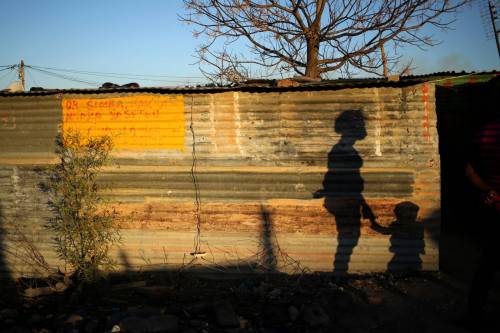Many Refugees In Africa Are Now Using Transactional S*x To Survive – United Nations Reveal
Posted by Samuel on Sat 11th Jul, 2020 - tori.ng
File photo
Two United Nations Organisations – the World Food Programme and United Nations High Commission for Refugees – in a joint statement said that many displaced persons across the continent were engaging in transactional sex to feed daily.
The two agencies said this in a humanitarian appeal on Thursday.
The WFP said it requires more than $600m to meet its commitment to refugee settlements in Congo DR, Ethiopia, Nigeria and other African countries for the next six months where food prices have jumped massively – 15 per cent in Congo DR for instance.
The UNHCR on the other hand said it needs $227m to catch up with its own obligations in Africa.
“In some cases, refugees are resorting to begging, transactional sex or early or forced marriages to be able to afford food,” the report said.
“Globally, WFP needs more than $1.2bn to support refugees globally for the next six months, just over half is for operations in Africa.
“As part of the broader UN Global Humanitarian Response Plan for COVID-19, UNHCR requires $745m for life-saving interventions, of which $227m is for operations in Africa.”
The agencies said in their joint statement that the increase in food prices has forced many to start skipping meals or going out to beg.
In the Republic of Congo, the average price of a basic food basket has increased by 15 per cent, while in Rwanda, around refugee camps, food prices were already on average 27 per cent higher in April compared to a year earlier, and 40 per cent higher than in 2018.
Many refugees are resorting to negative coping mechanisms, such as skipping meals or reducing meal portions.
The agencies said they were already stretched and have started rationing out their resources between the needy and vulnerable populations they cater to.
According to the report, cuts in rations are expected for Nigerian refugees in the country, while across East Africa, congestion at borders linked to COVID-19 have created congestion, delaying vital aid and trade flow.
Before the outbreak of the COVID-19 pandemic, the UNHCR and its partner agencies, worked to build four settlements in cross river and Benue for refugees displaced by a secession conflict between the English and French speaking regions of Cameroon.
Head of RemaCare, one of the UNHCR’s Nigerian partners, Eric Shu, told SaharaReporters the pandemic had made it difficult to construct more shelters for displaced Southern Cameroonians.
“Currently, we have one new settlement in Benue and three in Ogoja (Cross river),” Shu said.
“When COVID-19 came up, we had to build emergency shelters. The challenge of getting cements and other building materials has forced us to put constructing permanent shelters on hold.”
Shu said the refugees are given cash based interventions per household, to help meet their feeding needs and leave them with some left over for petty trading.
Although he did not state the average amount given to each family, he added that the Cross River State Government, the UN agency and its partners had provided support for farming as well.
The little gains made by the UNHCR, the WFP and their partners are under threat from COVID-19 and might be entirely lost.
“While the situation continues to deteriorate for everyone, the disaster is magnified for refugees who have absolutely nothing to cushion their fall,” said WFP Executive Director, David Beasley.
“In the best of times, refugees live in cramped conditions, struggle to meet their basic needs and often have no option but to rely on outside assistance for their survival. Now more than ever, they need our lifesaving support,” he added.






















































